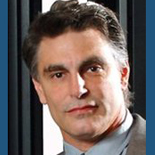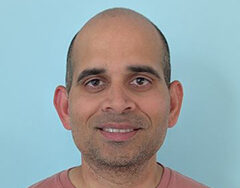Recording Venue: Phone
Guest: Jeff Frey
System z, or the Mainframe, holds most of us in awe — the ultimate computing platform, referenced in Hollywood as well as by those who thought they were dealing with “legacy” systems — but what does Mainframe really mean? What does its stack look like?
This leading virtualized infrastructure is not just hardware, but advanced sets of operating system, programming, and transaction-processing platforms that are relied-upon worldwide for massive-scale computational and data needs, and that are becoming increasingly applicable to the cloud world. Jeff Frey, IBM fellow and CTO for System z platform speaks with SE-Radio’s Scott Jensen about the history, features, and architecture of one of the world’s largest retail computers.
Show Notes
- System z
- Cluster via Sysplex
- VSAM (virtual storage access method)
- Technical Overview






Hello
Thank you for providing a great podcast. I’ve been listening for a long time!
One annoying thing about the podcast is that the genre is not set in the download file, which means that it is not in the correct list on my music player. Please can you set the genre to “podcast”.
Thanks
Praful
Hi,
I appreciate that some new people are now making episodes.
With this specific one however I am somewhat disappointed,
while the topic is quite interesting, the episode sounds like
a PR session by IBM.
Please more technical stuff and less marketing next time.
Johannes
I enjoyed listening to the show and like the idea of a deep dive into one enterprise offering. However, much of the discussion lacked the context to understand how System z compares to other products. To begin with, what is the difference (if any) between a mainframe and a supercomputer? Are these different marketing terms for an essentially similar product?
The Elephant in the Room in the discussion is Cloud Computing. Given that it seems one can’t discuss sardines or ice hockey nowadays without cloud computing coming up, the failure to compare System z to Azure or Amazon Web Services is a bit glaring. I’ve understood from the discussion that System z offers essentially an OS-level deadline scheduler, which is fascinating, but don’t tools that 3rd parties offer on top of AWS at least provide similar facilities? Frey seems to suggest that System z is more secure in keeping guests firewalled from one another, but his comments are quite vague. Does IBM offer a Cloud hosting service analogous to AWS on System z machines, or must customers purchase mainframes to use it?
VMWare, like System z, runs a hypervisor (ESX in VMWare’s case) right on top of the bare metal. How is System z’s approach different?
How is the model of network-attached storage different for System z than in popular offerings like Hadoop? Does System z also offer node-resident processing of requests to minimize data transfers?
Altogether, the show is a promising start to IEEE’s stewardship of SE Radio, but I hope that in the future vendors will have to answer these kinds of comparative questions. The interviewer otherwise did a fine job, although I hope that the original SE Radio hosts will continue to present shows as well.
This was the first SE-Radio episode I couldn’t bear listening to the end.
Why is a hypervisor burnt into the firmware better than one that is not?
Why is having two different hypervisors on top of each other an advantage one (maybe, because you cannot update the firmware one)?
I totally believe what was re-iterated again and again throughout the first half hour of the episode: what an incredible job Big Blue’s engineers did to ensure Z’s reliability and security. But it would have been really interesting to learn a bit about how they did it in some detail.
I am alarmed at the direction the podcast has taken with its inaugural IEEE episode. This interview is just a marketing message and has very little information that is useful for software engineers.
There are many marketing rags out there pushing advice that benefits the sponsor and has no relation to actual SE practice. Trade magazines are filled with mostly garbage advice (if it was good advice, you wouldn’t have to pay to print it). This episode is clearly similar: mainframe computing has obviously been marginalized over the past 10 years, but there was no discussion of the competing technologies, or the market trend.
SE Radio has been different because it focuses on SE practices that are best-in-class, and frankly discusses pros/cons of various vendors and solutions. My career has benefited more from SE Radio than all of the other industry publications I have read, including what IEEE and ACM provide. I hope IEEE can continue the SE Radio tradition, and not turn it into another irrelevant advertisement.
Thanks to all the folks who took the time to comment on this episode. Like Markus and his team, we at IEEE Software share the belief that the underlying engineering basics are the interesting bit, with specific tools or products used as examples. We’re going to be striving to ensure that that remains the focus of future episodes, although we know from experience that it’s sometimes hard to achieve that right balance. We’re working hard to live up to all of your high expectations!
I have to agree with the previous comments. I’ve been listening for a long time and this sounded like an infomercial for IBM. It was very disappointing, almost as if I could hear money changing hands.
I too was terribly disappointed at this inaugural episode of IEEE SE-Radio. I too turned it off after 15 minutes or so, even skipping ahead a bit to see if there was any substance of interest further in.
Thanks to everyone for all of their comments. This is Scott Jensen, the interviewer. Like Markus and the team, IEEE Software shares the belief that tools and products are examples of greater technology discussions. We have provided, and will continue to provide, interviews without commercial bias. As to the mainframe episode in particular, there is no commercial association in any way or context with this podcast, it is simply a platform that has few (really, only one) provider. With a lot of material to cover, we strive to ensure our focus today and in the future is technology and software in general. It is hard to achieve the right balance, but we are looking forward to living up to your high expectations.
Very kind regards,
Scott Jensen
The guy being interviewed was obviously highly knowledgeable about his product… but this episode unfortunately sounded like an extended advertisement disguised as a podcast. Half way through I actually found myself wondering whether IBM had made a payment to ieee software magazine for what sounded like an extended product placement. (I see from the comment above that this isn’t the case). As with a previous commenter, this was the first episode of SER that I could not listen to though to the end. I hope terribly much that this is not the future direction of SER. If what we end up with is a series of interviews with product evangelists and sales folk from IBM, Microsoft, VMware, etc., then something precious will have been lost.
Same for me. Boring marketing stuff. I wonder if this was the begin of the end of SE Radio.
I agree with most above comments.
I find it a very nice idea to pick a topic that is not part of the current “hype”, but I’d like to have a fair technical explanation, of pros and cons of the technology.
I can’t think that IBM solution is the best in the world, as this story suggests it.
I listened to the end, but I am truely disappointed.
The technical bits are interesting, but the constant bragging got on my nerve, too. I know that the mainframe folks live in their own world and that it is very different from what most of us use, and I certainly wish that I had a more dependable and resilient environment (OOM killer, you _must_ be kidding me). Still, some of the claims Frey made show his ignorance towards the outer world, and some just show a tendency to simply over-engineer stuff.
That said, I still found the episode enjoyable, in particular as a reminder that there are many different worlds and approaches to computing. While it may be true that a Mainframe can be cost effective, in particular for large organizations, money can be made with other solutions, too. And more fun can be had for sure.
I found kind of interesting to see so many negative comments on this. I consider myself as working in software (products development), and the description of the software architecture and multiple layers of the Series Z was really inspiring and interesting. To me, this kind of material is useful for anyone dealing with operating systems and systems architecture. I can see interesting patterns for use in building high-availability, clustered systems, heterogeneous systems, and similar things in areas like telecom, networking, wireless infrastructure…
Also, I like computer history and computer architecture, which I guess helps. That it was a proud explanation of what IBM System Z is OK – the system is simply amazing and far more interesting than the mundane machines most of us have to use daily.
[…] least that is the idea you get when the story is told in an IEEE SE-Radio interview with Jeff Frey of IBM. I highly recommend this podcast episode for anyone interested in the software and hardware […]
[…] The Mainframe […]
What else can we expect? They sold the idea to a corporation IEEE. This was IBM show, then Microsoft, after Amazon, then Dell. For me this is done. What a pitty. But money is money is money is….
I am also surprised by the wide range of negative comments. People want “more” technical details? Do these people understand that System Z has a 40 year legacy? Do they understand that there are HUNDREDS of people working in hardware and firmware teams; and probably thousands around zOS and zVM?
In other words: there is so much technical details, you could spent HOURS and HOURS talking about details on any level?
In other words: this podcast is announced as an introduction to System Z. And all important layers were covered to a good degree.
If you really want details, turn to http://www-03.ibm.com/systems/z/?lnk=mprSY-sysz-usen ; you will find an endless amount of documentation there.
[…] Software Engineering Radio: Episode 184 – The Mainframe with Jeff Frey, http://www.se-radio.net/2012/03/episode-184-the-mainframe-with-jeff-frey (letzter Abruf: […]